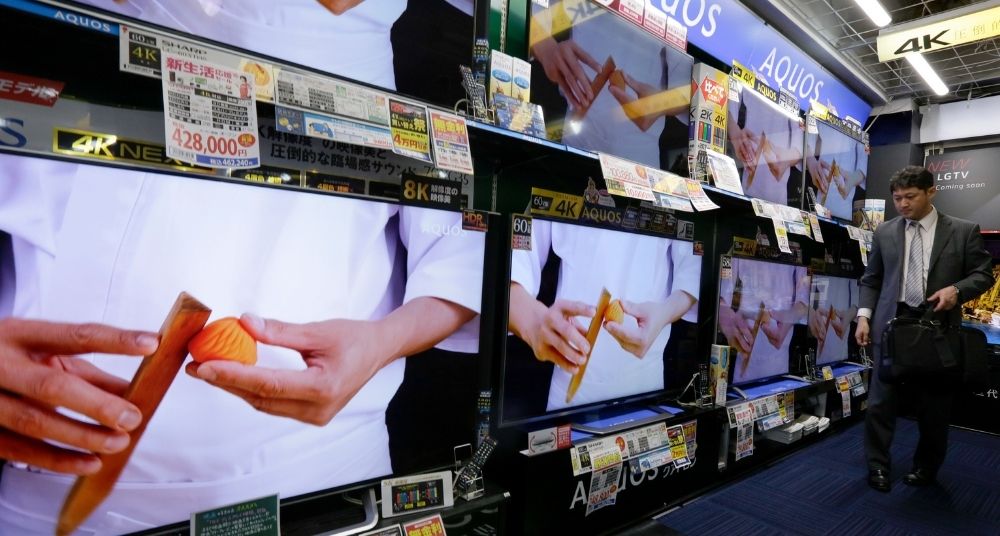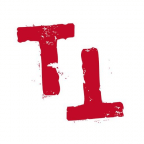
[ad_1]
Suspected of agreeing on the prices of the products, the Commission for the Defense of Competition initiated a procedure against three companies
 Photo: EPA KIMIMASA MAYAMA
Photo: EPA KIMIMASA MAYAMABased on its decision, the Commission, based on Eurostat data from last year, determined that prices for consumer electronics in Serbia were 13% higher than average prices in the EU.
Thus, for example, the prices of certain product categories were 33 to 39 per cent higher compared to prices in Hungary, where the value added tax is 27 per cent, while in Serbia it is 20 percent. The KPC notes that prices for consumer electronics in Hungary were 2.5 percent lower than the EU average.
By monitoring the market and comparing prices, the Commission concluded that in retail outlets, as well as on websites, electronic products are offered at identical or almost identical prices.
“The Commission reasonably assumes that there are agreed obligations, an agreement, which determines the prices and conditions of the resale trade, which is a restrictive agreement that constitutes a violation of competition under article 10 of the Law on Defense of Competition”, the KPC explained.
According to the Commission’s analysis, the Comtrade company violated the competition by determining the prices of Tesla products, and a review of the official websites of 10 retailers determined that for five models of Tesla televisions, all have identical prices.
The same TV model was offered by all ten outlets at a price of 14,990 dinars, while the other model cost 29,990 dinars, also with all the same. For the other models considered by the KPC, the store-to-store price difference varied by only five percent.
In the case of the other two companies, Roaming Electronics and Tehnomania, the Commission similarly determined to sell the same models at almost identical prices.
The Sony game console cost 51,990 dinars for seven retailers, while a TV model cost 17,990 dinars for six retailers. What the Commission stated was that Roaming Electronics is the importer of these products, Tehnomanija the distributor, and that it is debatable whether these two companies are connected.
Although the companies are for themselves, each has its own director, they are at the same address, on Južni Bulevar at number 10, and both are 100% owned by the Koefik company from Belgrade.
“Given that it has been determined that they have the same parent company, and that they are considered related market participants, and in accordance with article 5 of the Competition Protection Law, the related market participants are considered one participant”, he concluded the KPC.
According to APR, Koefik is located at the same address as Tehnomanija and Roaming and is owned by Nenad Kovač, an entrepreneur whom the Commission, more precisely another of his Milanković Rent companies, approved earlier this year to buy 12,900 square meters of space for offices in New Belgrade. .
CINS wrote about Kovac two years ago, as someone who concluded deals worth 145 million euros with the state in the previous ten years.
CINS writes that Kovac has made himself known to the public for the work of introducing the Bus Plus system on public transport in Belgrade.
“Before he bought Roaming Electronics, she founded Lanus. By the time Kovač owned Roaming Electronics, Lanus founded Apex Solution Technology company. In 2010, Apex was part of a consortium that won a lucrative collection job. of tickets for public transport in Belgrade ”, it is stated in the CINS text of October 2018.
It is uncertain how much and if these three companies will be fined for violating competition if proven in the ongoing procedure.
The history of sanctions, however, does not benefit consumers and the market because those sanctions in the past weren’t so great as to really be a real warning to those who break the law. Among the largest fines are those against sports equipment stores and Frikom, which nine years ago received a fine of four percent of total 2009 revenue for abusing its dominant position, which was about 2.8 million euros .
Somewhat later, during 2016, due to the organization of the cartel, N sport was fined one-fifth of the previous year’s earnings, while the Đak company was fined only one-twelfth of the same year’s earnings.
The total fine for 15 participants in the wholesale and retail market for clothing, footwear and sports equipment was 45.2 million dinars. There are more serious sanctions in the world, for which the European Commission fined Intel several years ago for giving returns of more than one billion euros, while Google was fined 2.400 million euros for favoring the results of its services.
The Serbian National Consumers Organization says they will trust the Commission and recalls that they have been warning the Ministry and inspections for years about various irregularities in the market.
“We have a database and we have spent years alerting and trying to find a solution. In the case of Tehnomania, objections were frequent in all the cities where we work, and those objections in a large number of cases, 45% of them, They were referring to the breach of the guarantee, then the damages, the price, ” NOPS President Goran Papovic told Danas.
Communication with this company, that is, their complaints service, as he says, usually goes well, but ends in no glory.
“What we insist on is reintroducing a class action lawsuit to better protect our rights, which was abolished in 2012,” said Papovic, noting that it would be good if the Commission took over part of consumer protection because it cannot be expected let the Ministry do the same. it protects both merchants and consumers well.
He says that he does not know how the Commission will punish those who violated the competition in this case, but he remembers that this punishment can be high and reach up to 10% of the annual profit.
Only in Iceland is electronics more expensive than in Serbia
According to Eurostat, last year electronic products were only more expensive in Iceland than in Serbia. While our prices are 13 percent higher than the EU average in Iceland, they are 34 percent higher. The price of consumer electronics in Norway is 11.5 percent higher than in the EU, which places this Scandinavian country behind Serbia in third place among European countries in terms of the “strength” of the prices of these products.
Cheaper than the EU average, electronic products are found in up to 13 countries, including Germany, Austria, Italy, but also Romania, Bulgaria and Turkey. It is the cheapest in Montenegro, where prices are 10 percent lower than the EU average.
Support us by being a member of the Danas Readers Club
In the age of widespread tabloidization, sensationalism, and media commercialization, we have been insisting on the principles of professional and ethical journalism for more than two decades. We were banned and called, no government was kind to criticism, but nothing prevented us from informing you objectively on a daily basis. That is why we want to trust you.
Membership in the Danas Book Club for 799 dinars per month you help us stay independent and consistent with the journalism we believe in, and you receive a PDF of Tomorrow’s Danas by email every night.
Related texts:
